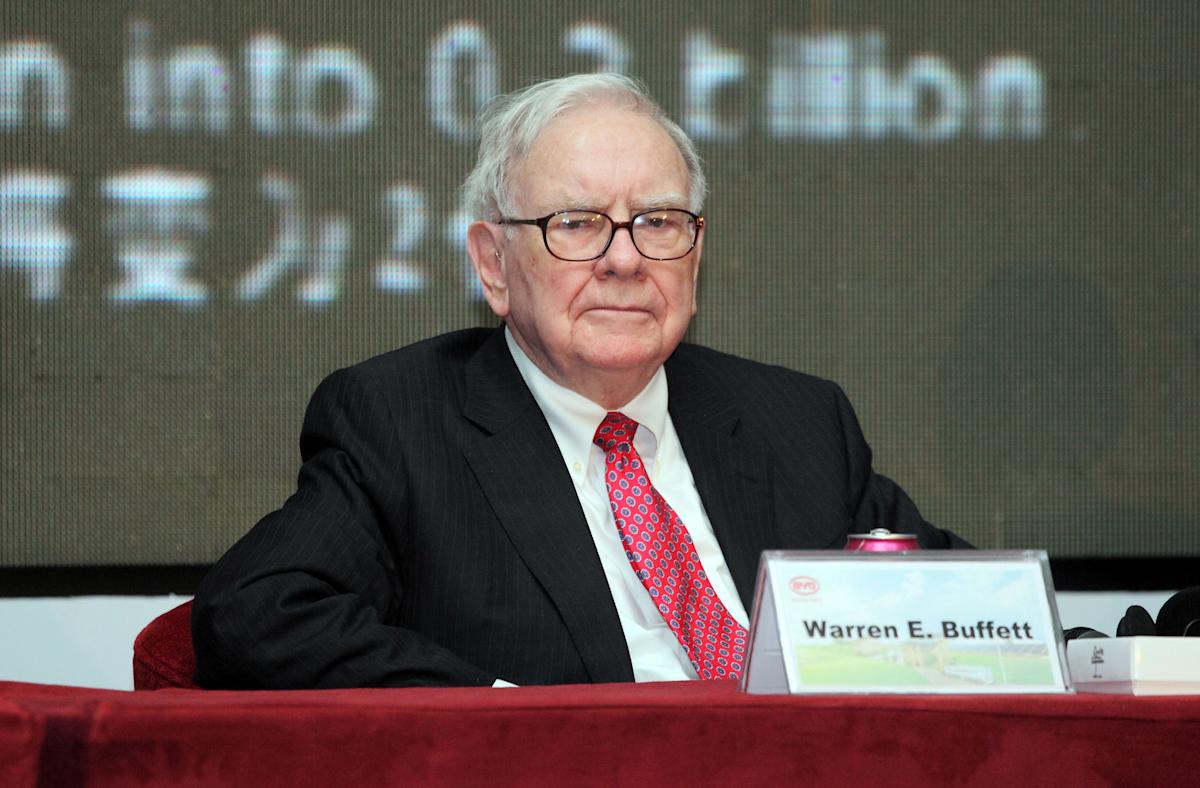BYD stock drops as Warren Buffett’s Berkshire Hathaway fully exits stake
Shares of China’s BYD (1211.HK) slipped on Monday on news Berkshire Hathaway fully exited its stake in the EV-maker.
Berkshire had been selling off pieces of its stake in BYD starting in 2022, but now it appears the Warren Buffett conglomerate has completed its divestment.
As first reported by CNBC, a Q1 financial filing by Berkshire Hathaway Energy, the subsidiary that held the shares, listed the value of the investment as zero at the end of the quarter.
Hong Kong-listed shares of BYD fell over 3% in Monday trade.
A Berkshire spokesperson confirmed to CNBC that the company had fully exited its BYD position; Berkshire did not immediately respond to Yahoo Finance’s request for comment.
A BYD executive did confirm the exit, however.
“We’re grateful to [Charlie] Munger and Buffett for their recognition of BYD, and for their 17 years of investment, support, and companionship,” said BYD PR exec Li Yunfei in a Weibo post on Monday, per Bloomberg.
Munger, Buffett’s longtime partner at Berkshire, was the conglomerate’s vice chairman for 45 years up until his death in 2023.
Berkshire initially bought into BYD back in September of 2008 during the throes of the financial crisis, with a 225 million share purchase worth around $230 million. Before it started selling parts of the stake late in the summer of 2022, Berkshire’s stake was worth around $7.7 billion.
According to Fortune, Buffett was intrigued by Munger’s description of Wang Chuanfu, the founder of BYD, whom Munger had met through a mutual friend. “This guy,” Munger said, “is a combination of Thomas Edison and Jack Welch — something like Edison in solving technical problems, and something like Welch in getting done what he needs to do. I have never seen anything like it.”
Perhaps Berkshire saw the timing of exiting the stake as opportune, given challenges the company and the auto sector are facing.
Though BYD’s battery electric vehicle (BEV) registrations topped those of Tesla in Europe for the first time in May of this year, and have been accelerating since then, overall the company’s explosive growth may be slowing.
Earlier this month Reuters reported that BYD has slashed its 2025 sales target in its home market of China by as much as 16% to 4.6 million vehicles per company sources, which would be BYD’s slowest annual growth rate in five years, signaling the company’s massive growth over the past few years may be shrinking.
A highly competitive EV-landscape in China, and possible oversaturation of products is weighing on the world’s largest EV-market.



Leave a Comment
Your email address will not be published. Required fields are marked *